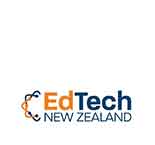
Pauline Cleaver – Associate Deputy Secretary of Early Learning Student Achievement at the Ministry of Education – outlines how New Zealand education is adapting for the digital world.
In what’s being called the Fourth Industrial Revolution – the impact of automation on future jobs, what we do, and our greater society is difficult to imagine and it will fundamentally alter the activities we perform and the skills we need. New Zealand education has adapted to this change, here’s how.
We want the next generation participating, creating and thriving in a transforming digital world. To ensure our National Curriculum is in good shape, we now have an explicit focus on digital technologies learning. This change occurred in late 2017, and schools and kura are expected to be teaching it by 2020. This is an ambitious challenge, it’s a journey that we will continue to support educators through – and it’s something we’re very excited about.
The National Curriculum change sets out to ensure that all of our tamariki and young people, in all schools and kura, have the learning opportunities to gain the new specific technological skills and capabilities required for the future of work and life. With this education focus, we’ll be supporting the growth of an innovative and flourishing New Zealand technology industry, and wider economy.
But more than this we want to support children and young people to develop a strong sense of digital citizenship and safety as people relate to one another in a way unlike before. The World Economic Forum Founder and Executive Chair Klaus Schwab notes that there will be Fourth Industrial Revolution issues associated with our sense of privacy, ownership, as consumers, and how we meet people, and nurture relationships.[1] This is why we need to focus digital technologies learning around wellbeing, and the wellbeing of others.
Along with building their critical thinking, problem-solving and communications skills and capabilities, students will consider the logic and design thinking that sits behind digital technologies. They will also consider how new technologies like advanced robotics, machine learning, and artificial intelligence are increasingly playing a bigger role in our daily lives and in society. Students will also be given opportunities to be able to create new innovative design solutions to problems in our local and global societies.
There are many teachers and schools who have seen this as important learning for years, so there is some brilliant learning happening already around the country. Through the implementation process so far we have seen that 95% of teachers[2] are prepared to have a go at teaching this new content. With this ‘can-do’ spirit we feel confident we are on the right track of ensuring equitable digital technologies learning opportunities for all tamariki and young people in Aotearoa.
We absolutely encourage schools to collaborate and network with technology and business experts to shape a dynamic and relevant curriculum for their learners. If you’re not on-board already – we hope that you’ll join us in this journey – and help to inspire this positive movement focussed on our children, their future, and the transforming digital world.
[1] https://www.weforum.org/agenda/2016/01/the-fourth-industrial-revolution-what-it-means-and-how-to-respond/
[2] https://www.ero.govt.nz/publications/its-early-days-for-the-new-digital-technologies-curriculum-content/






